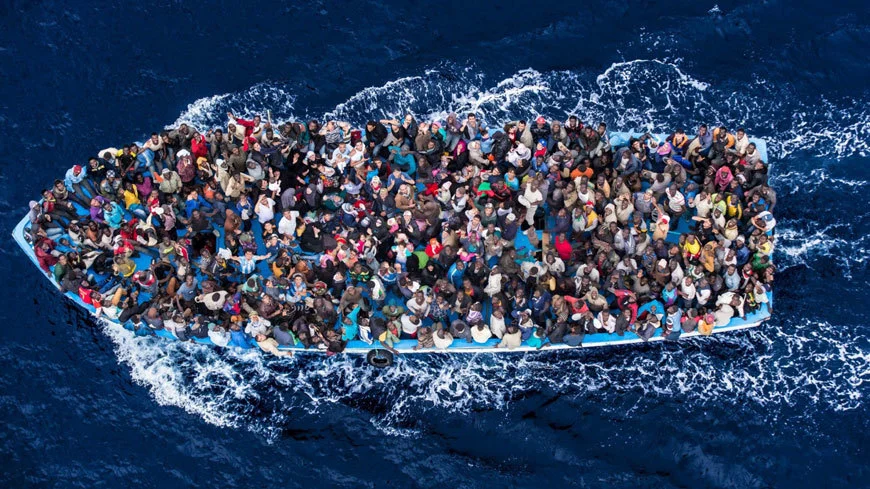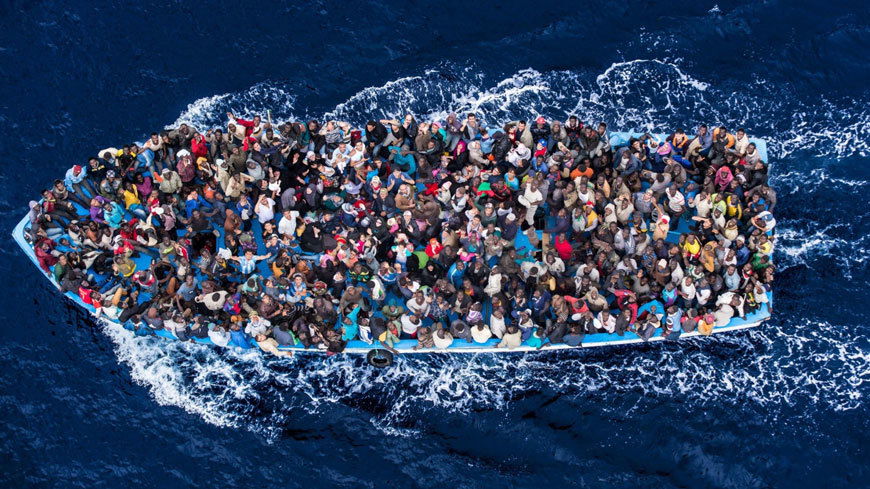The battle for the planet: Who will win the war with nature and her allies?

 Message from Wouter Veening, President, IES
Message from Wouter Veening, President, IES
The Hague, 11 June 2020
PRINT VERSION [PDF]
The world has become an ecological battlefield where large segments of mankind are fighting Mother Nature and her allies.
The former are using chainsaws, bulldozers, asphalt machines, excavators, drill platforms, snares, nets, guns and many other weapons to transform forests into cattle pastures, soybean fields, plantations, to penetrate and open the earth crust for minerals, oil, gas, coal, uranium, lithium and the other so-called rare earths and to cull, catch and poach wild life and fish.
They leave toxic (persistent) chemicals in water, soil and air and pump massive amounts of greenhouse gases into the atmosphere and massive amounts of groundwater from the soils.
The concentration of greenhouse gases in the atmosphere warms the world, causes droughts and floods, leads to irreversible sea level rise, and increases the intensity of extreme weather events [1]. This is the climate crisis, which, if unchecked, will make the planet uninhabitable for humanity and many other species of the community of life.
This is one of the ways in which Mother Nature hits back, which she also does by releasing viruses from places where she should have been left alone, causing the pandemics which now dominate the attention of the global community.
Her allies support her with scientific insights on how the natural world works - mapping and forecasting the actual state of the atmosphere, the oceans and the freshwater bodies (hydrosphere), the soils (lithosphere) and the diversity of life (biosphere). They also design legal arrangements to structure the response of the human society to the challenges to Mother Nature; they actively participate in diplomatic efforts to implement these arrangements in practice, also involving the enlightened military in this.
In addition they promote technological and financial innovation to steer production and consumption patterns towards harmony with nature and they are active in approaching schools and the larger public through the traditional and social media to raise consciousness about the planetary predicament and what can be done about it in daily routines.
Vital ecosystems as the Amazon and the rain forests in Indonesia, Malaysia and New Guinea are being destroyed at a higher tempo than ever before.
It is clear, however, that at this moment, the start of the 2020s, the allies of Mother Nature are losing the battle. Vital ecosystems as the Amazon and the rainforests in Indonesia, Malaysia and New Guinea are being destroyed at a higher tempo than ever before and, were it not due to the Covid-19 pandemic, greenhouse gas emissions would have been the highest to-date.
Why the destructive forces have the upper hand?
It is necessary to analyse why the destructive forces have the upper hand - what are their resources? – in order to strategize better for the protection and sustainable management of the world ecology.
One is the often religious inspired ideology of man being the crown of creation, to which all other creatures are subordinate, only to be hunted, harvested or used at will by their human superiors. While that ideology may have been understandable in (pre)historic times when human numbers in relation to the rest of nature were limited and the knowledge of weather and climate determining the success or failure of harvests was also limited – it was all in God’s hand. In this age, the Anthropocene, it is counterproductive.
The main product of this ideology is a life-style with high levels of material comfort and high intensities of inputs from nature as referred to in the opening of this message. This life-style, often called “the American way-of-life”, is in practice enjoyed by a minority of the world’s population, but aspired to by many and as such is a powerful motive for politicians promising to bring such a life-style to their societies. It is an important pull factor for migration for those who do not see improvements in their material life patterns happening in their foresee-able future.
We observe these migration processes from Mesoamerica to the United States and from Western and Eastern Africa, including the Horn, to Europe. Of, course insecurity due to resource and/or socio-cultural conflicts is an important push factor. It is a serious aspect of global injustice if the resource conflicts e.g. in the Sahel or the Horn of Africa between pastoralists and farmers are caused by droughts, which in their turn are caused by climate change originating from energy use elsewhere in the world.

Photo source: Letter to Belgium, visit to Greece and a statement on migration policies in Europe Council of Europe Newsletter – July 2017
The material comfort that comes with the American way-of-life is not only attractive for many, but it is also addictive for those enjoying it. And, as it goes, with addiction come the dealers providing the dope. These are the oil, coal and gas companies producing and selling the cheap energy on which the life-style depends, the mining companies producing the hard materials for the consumer goods and all needed intermediate goods directly affecting the natural environment and the agricultural and food companies loading the breakfast, lunch and dinner tables of those who can afford the life-style, with comestibles and beverages from all corners of the world, and transported to those tables by highly polluting ships and aircraft.
Dealers care primarily about money and are incentivized to maximize their profits by cutting their production costs as much as possible. True-cost pricing requires government interventions in the form of regulations which are also enforced. In many countries producers and dealers had the political resources to effectively resist enforceable regulations and often were and are able to abolish existing regulation they find too restrictive. President Trump’s dismantling of the Environmental Protection Agency and President Bolsonaro’s clipping of the Brazilian environmental agency IBAMA and the Brazilian Indian Service FUNAI are cases in point.
The dealers and producers have the resources to hire lobbyists who can directly engage with ministers, civil servants and parliamentarians to scrap or water down regulations they consider too costly and they can buy scientists who can “prove” that climate change either does not exist or is not caused by man, like Exxon/Mobil and Shell have done. Many addicted consumers (who are also voters) want to believe this as they need to reconcile their behaviour with their insights. This is the famous cognitive dissonance reduction, well-known in social psychology - which states, on the basis of observation that every individual, (also you and me!) needs to balance his views with his own personal behaviour: if you drive a gas-guzzling SUV its emissions will not produce climate change, because science has proven that change does not exist.
Science as a major asset in the defence of nature
What can the allies of Mother Nature bring to the battlefield and what are the strengths and weaknesses of these assets in relation to the enemy, or, in other words, what will be the expected outcome of the battle?
Science on the basis of empirical observation and verification is considered to be a major asset in the defence of nature and the protection of water, air and soils against pollution. It forms the foundation for arguments and action to conserve and protect the bio-physical environment.
Science on the basis of empirical observation and verification is considered to be a major asset in the defence of nature.
However, as referred to above, scientific cognition will be discarded if they conflict with cognition associated with short-term need satisfactions. They often are then labelled “fake science” and we see with the Republicans in the U.S., the populists in Europe, the Evangelicals in Brazil, amongst others, how this leads to undermining of e.g. climate policies with further greenhouse gas emissions, loss of biodiversity, destruction of global ecological assets such as the Amazon, and this all against the science-based opposition of the green movement and the politicians and policy-makers on their side.
Closely associated with the natural science arguments the friends of nature bring economic arguments to the arena showing that working in line with natural forces will prevent costly or even insurmountable adaptations in the foresee-able future [2]. While on the one hand these arguments suffer the same fate as the natural science cognitions when they conflict with short-term needs satisfactions, the fighters for Mother Nature here have a powerful ally in the form of the insurance industry, especially the re-insurance branch of that industry. If an activity needs insurance if it wants to be covered against ecological risks in the future, then the insurance-giver may require provisions to minimise those risks before agreeing to a certain level of coverage.
Of course there are entities with hit-and-run activities which don’t care about ecological risks as they would occur after they have left the field - many mining operations belong to this category of entities - and they act without insurance. One of the “advantages” of the mining industry is that they often operate in far-away locations with local populations lacking the political resources to adequately control the conditions under which the mines are functioning in practice. As they also usually deliver to other (intermediate) industries, their products are invisible to the consumer, which makes it difficult to mobilise public campaigns against their malpractices.
Diplomacy and the Rule of Law
On the diplomatic level, the European Union with its new Green Deal and its new Biodiversity Strategy should be both a powerful and influential ally on the battlefield. As the largest market in the world it has considerable economic power and it has shown willingness to tie its internal and external trade relations to environmental conditions as they are embodied in the various Multilateral Environmental Agreements to which the EU and its Member States are Parties.
Whether NATO can come to the defence of Mother Nature is still an open question. It of course has to confront security challenges in its Neighbourhood (Middle East, West Asia, North Africa) emanating from environmental degradation over there. Most outspoken in the pre-Trump era was the U.S. military. See amongst others the Quadrennial Defence Reviews of 2010 and 2014 with strong statements on the relevance of the climate change crisis both for strategy and operations. If and when the Pentagon gets the political space again to prepare further for the consequences of climate change and to engage on this with its NATO partners, it can become a force for the protection of the ecological good around the globe.
A very concrete challenge would be to restore the rule of law over the management of the South China Sea according to the prescriptions of the UN Convention on the Law of the Sea (UNCLOS) and the Award of the Permanent Court of Arbitration of 12 July 2016 in the case of the Philippines against China concerning the management and entitlements with regard to the Sea, one of the most important marine biodiversity areas in the world. Only the U.S. can project the power to indeed bring this area back to the realm of international jurisdiction.
Truly global media … tend to take international environmental and climate issues seriously and often engage in deep-digging investigative journalism.
Finally in this overall overview of the (potential) allies on the battlefield to defend nature, there is the bit elusive entity of international public opinion. Truly global media such as the New York Times, the Guardian, CNN, Le Monde, Frankfurter Allgemeine (and many others) tend to take international environmental and climate issues seriously and often engage in deep-digging investigative journalism on the what, how and who of pollution scandals or misleading public opinion campaigns as e.g. sponsored by the fossil fuel industry. Of course the Russian and Chinese media are state-controlled and will deny in general the existence of domestic problems and/or contributions to international ecological questions when that would undermine the position of their regimes and consorts.
What can we do?
This rough overview of the enemies and allies of Mother Nature cannot predict the outcome of the battle in the sense that mankind will be in time to counter the impacts of its onslaught on the natural environment.
A major actor on the world stage is China, at this moment (spring 2020), the first emitter of greenhouse gases and the second economy in the world, with no respect for human rights domestically or externally, and with an aggressive foreign policy oriented towards territorial expansion (Taiwan, Hong Kong, the already mentioned South China Sea), the continued occupation of Tibet, and the heavy infrastructure and mining investments in vulnerable ecoregions all over the world - the latter as part of its so-called Belt and Road Initiative (BRI).
IES will promote efforts to assess the global role of China through the lens of environmental security and to mobilise international diplomacy to stop irreversible negative impacts of the BRI.
More in general IES will support - and initiate where possible - the development and implementation of a “Global Ecological Investment and Management Agenda (GEIMA)” with as primary purpose the reduction of the concentration of greenhouse gases in the atmosphere, which is the determining metric for the impacts of the climate crisis around the world such as heat, droughts, floods, sea level rise, extreme weather events and the many other so-called Essential Climate Variables.
It is one of the functions of natural ecosystems to sequester CO2 from the atmosphere and store it in soils and vegetation and thus provide the cooling the world and the community of life so desperately need. Protection of forests and restoration by means of extensive tree planting are key efforts to lower temperatures and regulate precipitation. IES will promote a global map of the major ecosystems to be protected or restored, with an analysis of both the threats and the conducive factors in relation to these systems.
We will also proceed on the basis of a calendar of the relevant events, such as the Conferences of the Parties of the Multilateral Environmental Agreements, and the meetings of the Global Environment Facility as the financial mechanism for many of these agreements. For IES, a policy that is not monitored as to compliance nor enforced is no policy, but at best a paper tiger.
Headquartered in The Hague, International City of Peace, Justice and Security, but also Legal Capital of the World, IES will have a special focus on the prosecution of environmental crime by the International Criminal Court to make international environmental law a legal tiger that can also bite.
If we don’t, Mother Nature will react without quarter for mankind and large segments of the community of life.
IES ‘s motto is that of Prince William of Orange when he led the struggle for independence of the Dutch against the Spanish oppression in the 16th century which resulted in that independence at the Westphalia Peace Conferences of 1648:
“It is not necessary to hope in order to act, nor to succeed in order to persevere.”
[1] In climate science 54 so-called Essential Climate Variables are distinguished which all are impacted by the concentration of greenhouse gases in the atmosphere and/or can provide an entry for action to balance the climate: https://gcos.wmo.int/en/essential-climate-variables
[2] It should always be realized that, etymologically, eco-nomy, is the normative version of eco-logy, where eco comes from the Greek ‘oikos’, meaning house or environment, which is the science of how living beings relate to their environment. Economic activities not in line with ecological insights are bound to backfire, as the impacts of climate change now are making abundantly clear. The problem is that these impacts often take time to manifest themselves, time which give the perpetrators an opportunity to bring their profits to safe-havens.